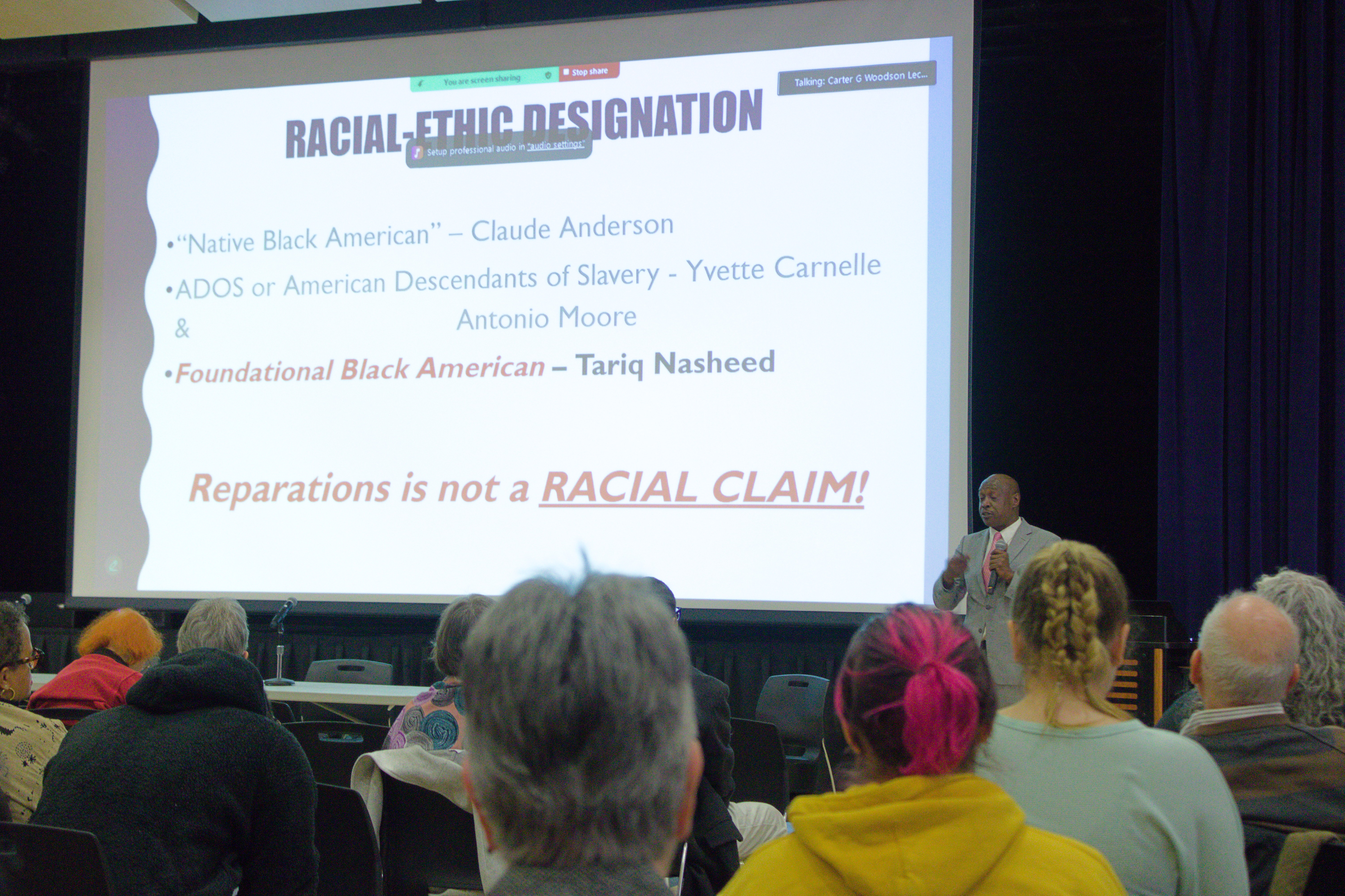Millersville University hosted on Thursday its annual Carter G. Woodson Lecture, which discussed reparations for Black Americans.
The event featured Professor Yasser Arafat Payne from the University of Delaware as keynote speaker. Payne offered a roughly 45-minute lecture on the history of the Black reparations movement and why they are important today. Afterwards, a panel of local Black leaders discussed the local reparations movement.
The panelists were moderated by Rev. Roland Forbes of Ebenezer Baptist Church. Panelist included Vincent Derek Smith, founder and president of the African American Cultural Alliance of Lancaster, Deborah Wilson Gadsden, the director of equity, inclusion and belonging at Child Welfare League of America, and Darlene Byrd, the CEO and president of South Ann Concerned Neighbors.
At the center of the panel discussion was the Reparations Action Fund for Tomorrow, an undertaking being made by faith groups in Lancaster County to build a fund to be used for Black reparations. The fund was organized by the Community Mennonite Church of Lancaster. The fund receives donations through the Lancaster County Community Foundation.
Reparations, according to Payne, are not unprecedented. Several groups have received them from the U.S. government in the history of the nation, including Indigenous Americans, Japanese Americans, and even white slaveowners following the Emancipation Proclamation.
Payne, however, painted a picture of Black America constantly being left out in the cold. The wealth gap between Black households and white households in the U.S. was shown through a graph of median net worth’s between the mid-1980s and 2013. In 2013, the median for white households was $116,800. For Black households, it was $1,700.
“The evidence is overwhelming…” Payne said in opening his speech, “This is one of the easiest cases to win.”
The panelists made a distinction between reparations and “handouts.” Reparations, according to Forbes, are about “human development.” He later added that they are an investment into a community to ensure their success. According to Smith, reparations are about empowering the Black community to support themselves, rather than being supported by groups which are often led by white leaders.
“I think allyship is being able to stand beside someone, without telling them what you think they need,” Gadsden said. The panel highlighted the need for Black Americans to be able to stand on their own, a key goal aimed for by advocates for reparations.
However, Payne in his speech pointed out that race itself hides the truth about Black poverty, hiding that the wealth gap is an ethnic problem. He made a distinction between African immigrants to the U.S. and the “foundational Black Americans” who are descendants of slaves. Foundational Black Americans are significantly more impoverished than African immigrants, according to Payne. The history behind this, he said, was America’s efforts across history to enforce poverty on Black Americans, to protect the interests of wealthy white people.
“If the program does not end the grievance, it is not reparations,” Payne said towards the closing of the event.
(Editors Notes: This article was written by One United Intern Jamie Hughes. Hughes, a Lancaster resident who currently attends Millersville University, he got his start in journalism by joining the university newspaper “The Snapper.” Hughes has a personal fascination with the history of the Lancaster area as well as the natural beauty of the county. He frequently visits locations around the county to photograph natural scenery as well as locations in Lancaster City.)






